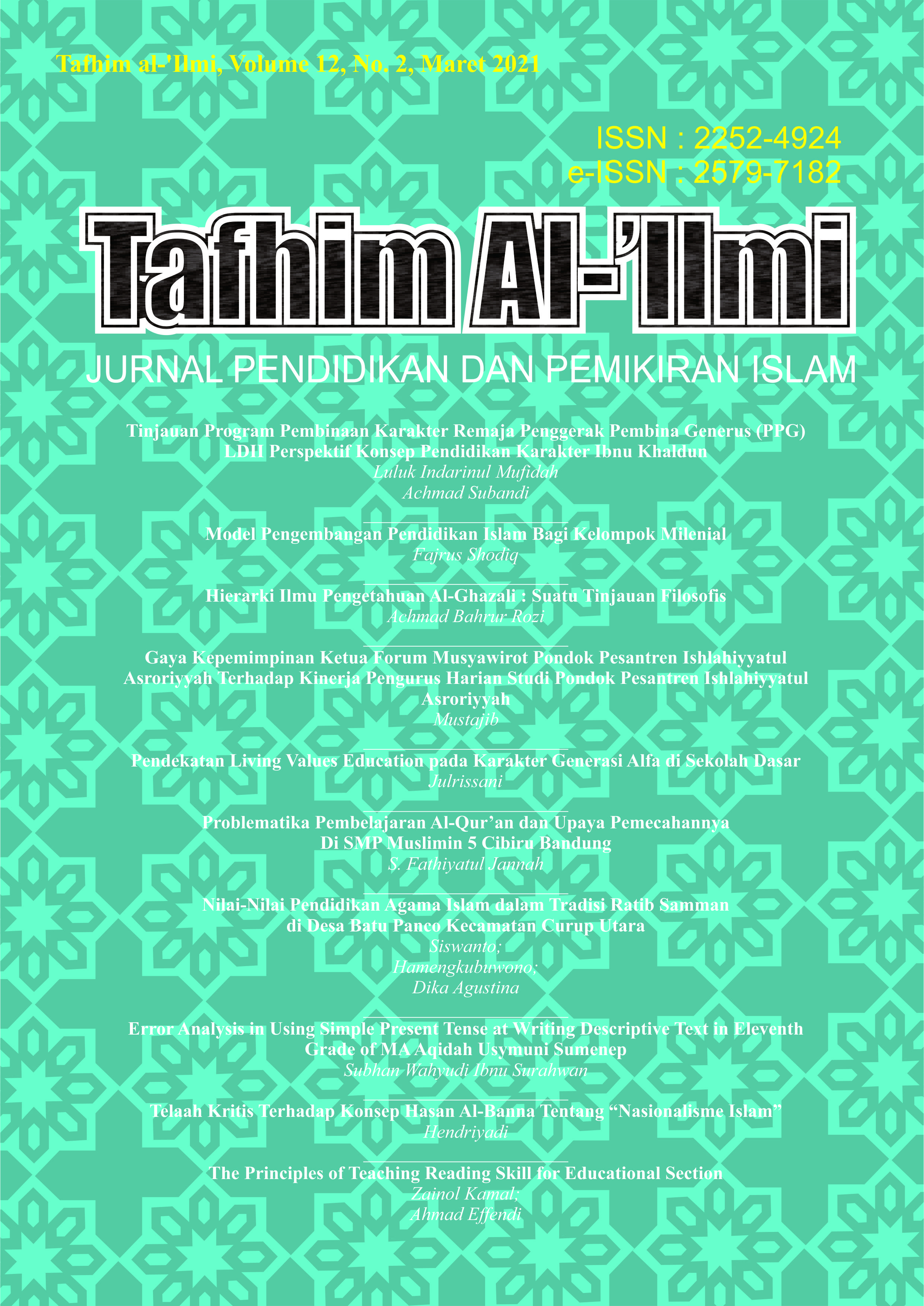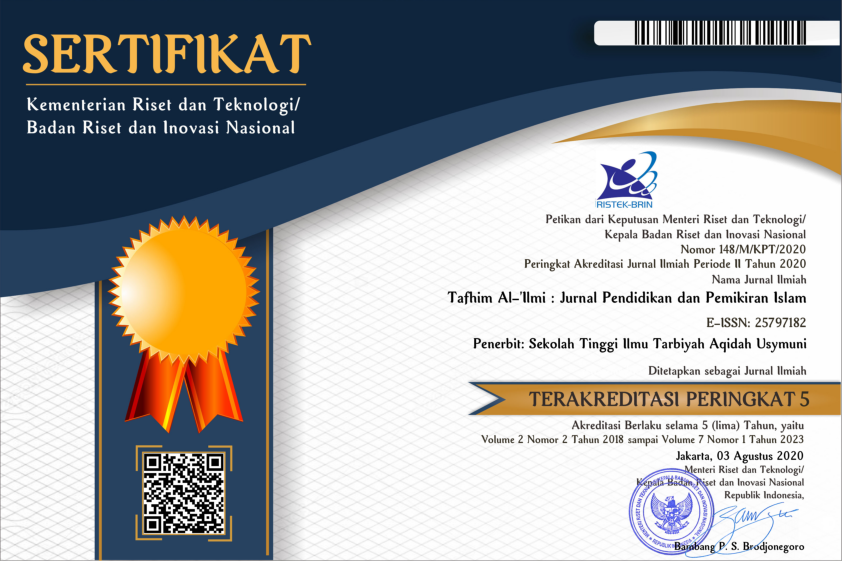Model Pengembangan Pendidikan Islam Bagi Kelompok Milenial (Studi Kasus di Kafe Basa Basi Sorowajan Banguntapan Bantul Yogyakarta)
DOI:
https://doi.org/10.37459/tafhim.v12i2.4341Abstract
The purpose of this study was to find out about the Cafe Basabasi Sorowajan Banguntapan Bantul. There are many religious activities, including: Selawat Burdah, public lectures, and free takjil. In fact, the majority of cafes are only used as a place to hangout and have coffee. In addition, the majority of visitors are millennial groups. Based on some of the things he mentioned above, this study aims to answer questions about the model of developing Islamic education for millennial groups, the reasons for teaching Islamic education, and its implications for the religious behavior of millennial groups. This research is a field research (field research). Data collection is done by means of observation, interviews, and documentation. Meanwhile, the data analysis used Miles and Huberman's model. The validity of the data in this study used a credibility test with triangulation. The results of this study can be concluded that the integrated Islamic education development model for millennial groups at the Basabasi Sorowajan Bantul Café is found in activities: semaan Al-Qur'an, Selawat Burdah, free takjil, and public lectures. Keywords: Integrative. Millennial.Downloads
Published
2021-03-31 — Updated on 2021-09-30
Versions
- 2021-09-30 (2)
- 2021-03-31 (1)
How to Cite
Sangidu, A., & shodiq, fajrus. (2021). Model Pengembangan Pendidikan Islam Bagi Kelompok Milenial (Studi Kasus di Kafe Basa Basi Sorowajan Banguntapan Bantul Yogyakarta). Tafhim Al-’Ilmi, 12(2), 184–200. https://doi.org/10.37459/tafhim.v12i2.4341 (Original work published March 31, 2021)
Issue
Section
Articles
License
Copyright (c) 2021 Tafhim Al-'Ilmi

This work is licensed under a Creative Commons Attribution-ShareAlike 4.0 International License.
Artikel yang dimuat dalam jurnal ini boleh disebarluaskan, diterbitkan kembali, dengan syarat mencantumkan bahwa artikel tesebut telah dimuat di jurnal Tafhim al-'Ilmi dengan mencantumkan volume, nomor, dan halaman artikel terkait.







